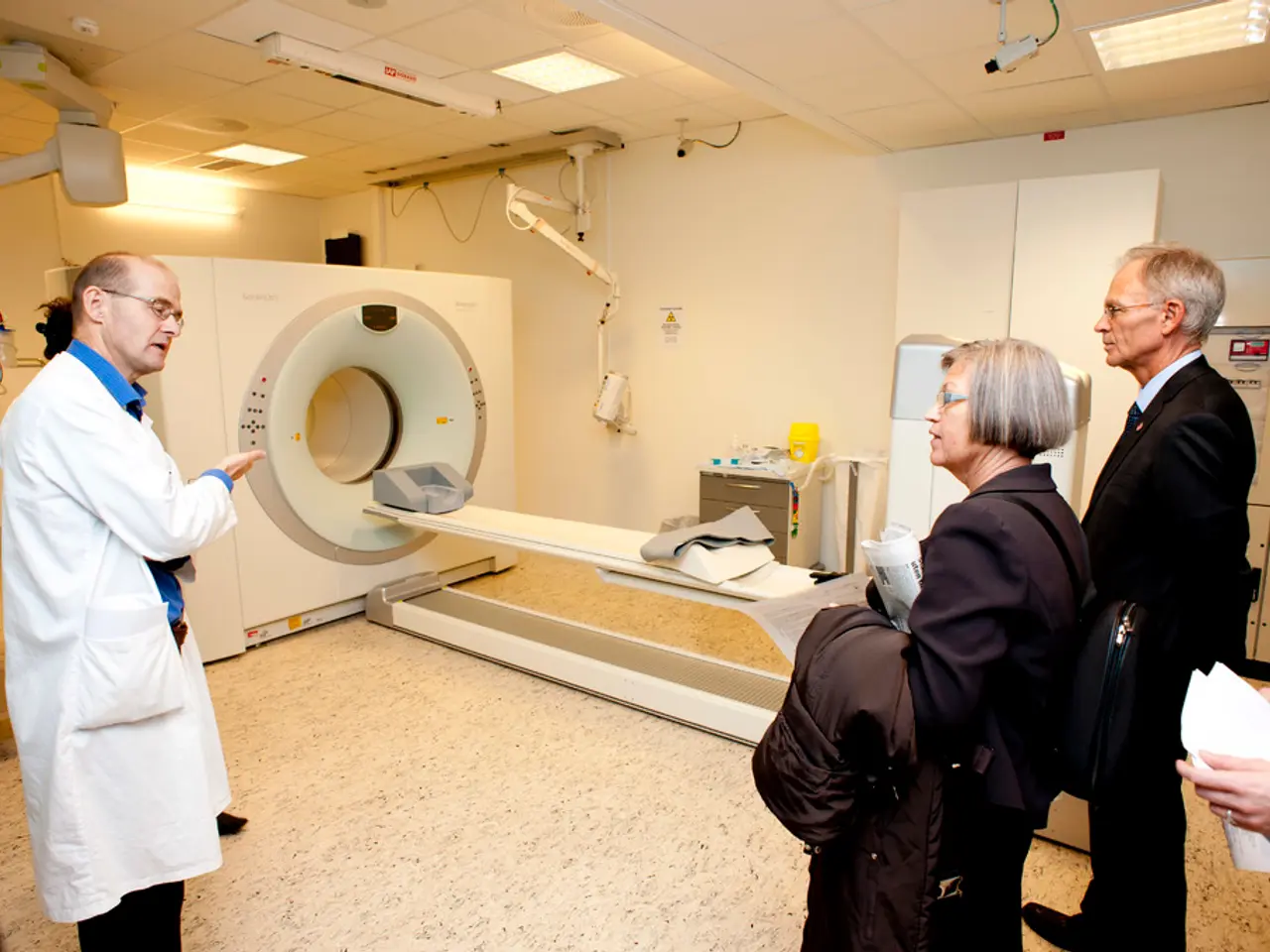Identifying Overabundance of Negative Individuals: Recognizing and Managing Them
In the modern world, digital health solutions are transforming the healthcare landscape, offering numerous benefits across various aspects of the industry. From increasing access to care and improving the quality of care, to reducing healthcare costs and boosting patient engagement, these innovative technologies are making a significant impact.
One of the most notable advantages of digital health is its ability to increase access to care. Telehealth services allow patients to receive consultations remotely, reducing the need for in-person visits and improving accessibility for those in remote or underserved areas. Remote monitoring enables continuous health condition monitoring from home, ensuring timely interventions and reducing hospital admissions.
Digital health solutions also improve the quality of care. Clinical Decision Support (CDS) systems provide healthcare providers with real-time, evidence-based insights, leading to better decision-making and more consistent care delivery. Artificial intelligence (AI) and machine learning enhance diagnostic accuracy and streamline care coordination, ensuring that patients receive appropriate and timely treatments.
In terms of reducing healthcare costs, digital health solutions do so by streamlining workflows and reducing unnecessary hospitalizations. Early disease detection enables more cost-effective management and treatment, while telehealth and remote monitoring reduce the need for expensive hospital visits.
Digital health solutions also increase patient engagement by offering easy access to health information and tools. Centralized platforms empower patients to take an active role in their health management, while personalized data insights provide them with real-time data, enhancing their understanding of their health conditions and fostering informed decision-making.
Digital health solutions also play a crucial role in improving public health outcomes. Data-driven research facilitates the development of more effective treatments and strategies against diseases. Equitable care delivery helps reduce disparities in healthcare quality by ensuring that all communities have access to evidence-based care, regardless of geographical location.
However, the lack of interoperability between different digital health systems is a challenge. It is essential that various digital health tools and devices can communicate and share data seamlessly. Improved health policies can also impact access to healthcare, disease prevention, and health outcomes. Policies promoting healthy behaviours and improving access to healthcare for low-income populations are particularly important.
Wearable devices and mobile health apps can monitor health status, detect early warning signs, and manage chronic conditions in digital epidemiology. Digital health refers to the use of digital technology in healthcare, including medical devices, digital tools, wearable devices, and artificial intelligence.
Looking to the future, emerging technologies like blockchain, 5G, and quantum computing are set to revolutionize the healthcare industry, enabling healthcare providers to offer more personalized care and improve health outcomes. User adoption remains a significant challenge, as patients and healthcare providers must be willing to use these digital tools to benefit from the potential improvements in health outcomes they offer.
In conclusion, digital health is revolutionizing healthcare, offering numerous benefits across various aspects of the industry. From increasing access to care and improving the quality of care, to reducing healthcare costs and boosting patient engagement, these innovative technologies are making a significant impact. As we move forward, continued investment in digital health solutions and policies promoting their adoption will be crucial in ensuring that everyone has access to high-quality, affordable healthcare.
Digital health solutions, such as telehealth services and remote monitoring, improve health-and-wellness by offering increased access to care for patients in remote or underserved areas, reducing the need for expensive hospital visits. Furthermore, these technologies enhance productivity in the science field by facilitating data-driven research in health and wellness, leading to the development of more effective treatments and strategies against diseases.




